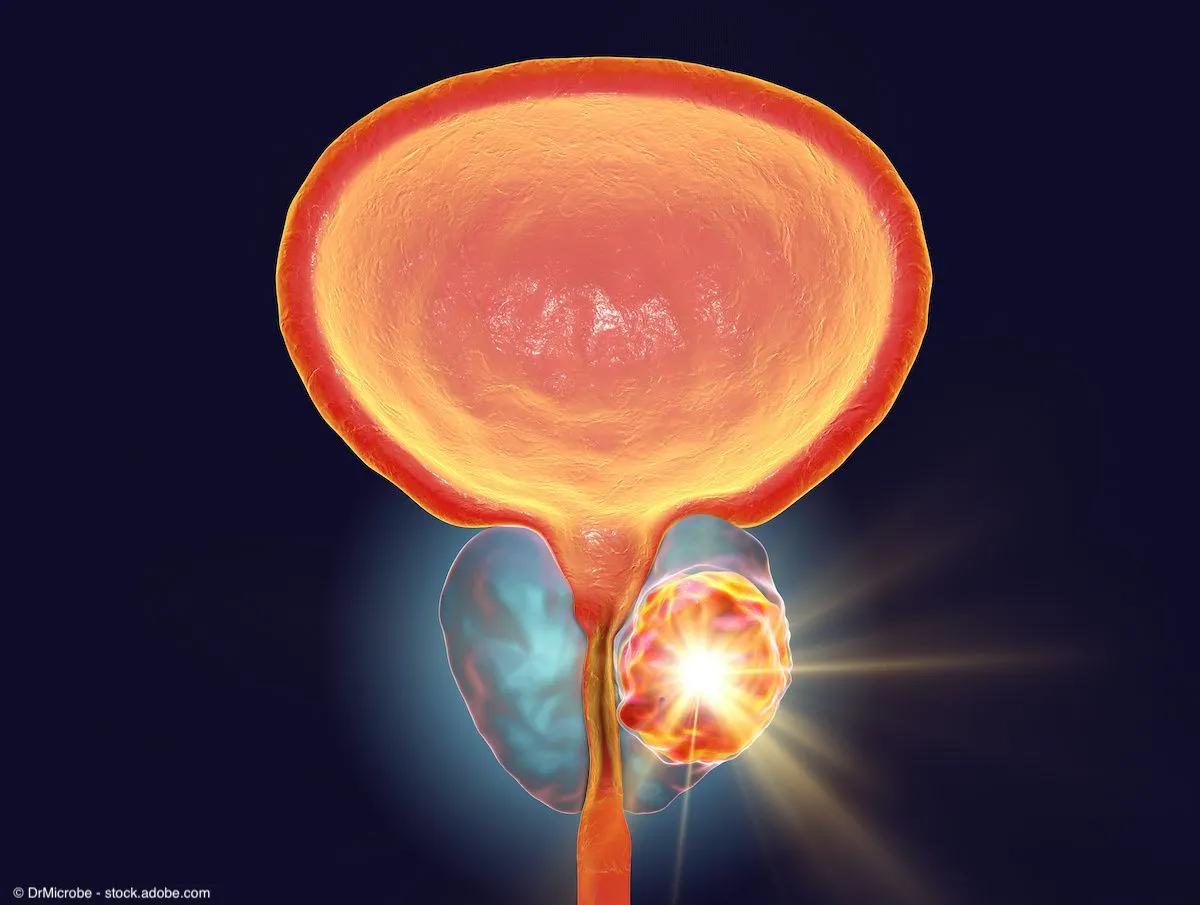Study of ONCT-534 in mCRPC continues to progress
The study is enrolling patients with relapsed/refractory metastatic castration-resistant prostate cancer who have received at least 1 next-generation androgen receptor pathway inhibitor.
Patient enrollment and dosing continue to advance in a phase 1/2 study of ONCT-534 in patients with relapsed/refractory metastatic castration-resistant prostate cancer (mCRPC) treated with at least 1 prior androgen receptor pathway inhibitor (ARPI), according to Oncternal Therapeutics, the developer of the dual-action androgen receptor inhibitor.1
According to Oncternal, “ONCT-534 interacts with both the N-terminal domain and the ligand-binding domain of the androgen receptor (AR),” which both inhibits cell growth and leads to AR degradation.

The company provided a recent update explaining that 1 patient each had been safely treated with 40 mg and 80 mg of ONCT-534 daily, and 2 patients have now been enrolled in the next dosing cohort of 160 mg/daily.
“The ONCT-534-101 study investigators are enthusiastic about this study, and we are excited about the enrollment and progress through the initial dosing levels. Reaching the third cohort represents an important milestone for the program, as we believe we are nearing potentially therapeutic doses that may benefit prostate cancer patients who have progressed after treatment with an approved ARPI, such as enzalutamide, abiraterone, apalutamide and darolutamide,” Salim Yazji MD, chief medical officer at Oncternal Therapeutics, stated in a press release.1
“We believe ONCT-534, with its novel mechanism of action involving both the ligand-binding domain and the N-terminal domain of the androgen receptor (AR), may address a significant unmet medical need for patients with advanced metastatic prostate cancer, especially those with splice variants of the AR, mutations in the ligand-binding domain of the AR, or AR amplification, common mechanisms of resistance that may develop to treatment with currently approved AR pathway inhibitors,” added Yazji.1
According to Oncternal, “ONCT-534 interacts with both the N-terminal domain and the ligand-binding domain (LBD) of the androgen receptor (AR),” which both inhibits cell growth and leads to AR degradation.3
The open-label, single-arm, multicenter, phase 1/2 study is evaluating the efficacy, pharmacokinetics, and safety/tolerability of ONCT-534 in patients with mCRPC and relapsed/refractory disease after receiving treatment with 1 or more next-generation ARPIs, consisting of enzalutamide (Xtandi), abiraterone acetate (Zytiga), apalutamide (Erleada), and darolutamide (Nubeqa).
To enroll, patients must have an ECOG performance status of 0, 1, or 2; serum testosterone less than 50 ng/dL; and a life expectancy of at least 6 months. A patient’s PSA level must be at last 10 ng/mL, or at least 2 ng/mL if they also have had at least a 50% increase from their lowest PSA level on prior therapy, whichever is lowest. Patients are not eligible to enroll if they have small cell prostate cancer or neuroendocrine disease histology, including mixed histology, or if they have brain or CNS metastases.2
In phase 1 of the trial patients will be assigned to specific dose levels. Based on the results with these dose levels, there will be 2 recommended dose levels chosen for phase 2.
The primary end points for the trial include determining maximum-tolerated dose, safety/tolerability, ≥50% PSA decline, ≥90% PSA decline, response, and progression-free survival.2
The estimated study completion date is January 31, 2028.2
The FDA previously granted a Fast Track Designation to ONCT-534 for the treatment of patients with relapsed/refractory mCRPC that is resistant to ARPIs.3 The designation is designed to expedite the review and development of novel treatments that will fill an unmet medical need.
References
1. Oncternal Therapeutics Enrolls Patients into the Third Dosing Cohort of its Phase 1/2 Study of ONCT-534 for the Treatment of R/R Metastatic Castration-Resistant Prostate Cancer. Published online and accessed January 8, 2023. https://investor.oncternal.com/news-releases/news-release-details/oncternal-therapeutics-enrolls-patients-third-dosing-cohort-its
2. NIH US National Library of Medicine ClinicalTrials.gov. A Clinical Study of ONCT-534 in Subjects With Metastatic Castration-resistant Prostate Cancer. ClinicalTrials.gov Identifier: NCT05917470. Last update posted October 23, 2023. https://classic.clinicaltrials.gov/ct2/show/NCT05917470
3. Oncternal Therapeutics Announces FDA Granted Fast Track Designation for ONCT-534 for the Treatment of Metastatic Castration-Resistant Prostate Cancer. Published online October 26, 2023. Accessed October 28, 2023. https://investor.oncternal.com/news-releases/news-release-details/oncternal-therapeutics-announces-fda-granted-fast-track
Dr. Agarwal on significance of ultra-low PSA levels achieved with apalutamide in mCSPC
January 11th 2024Neeraj Agarwal, MD, discusses an analysis from the phase 3 TITAN trial that explored the correlation between PSA response and survival among patients with metastatic castration-sensitive prostate cancer receiving apalutamide.
